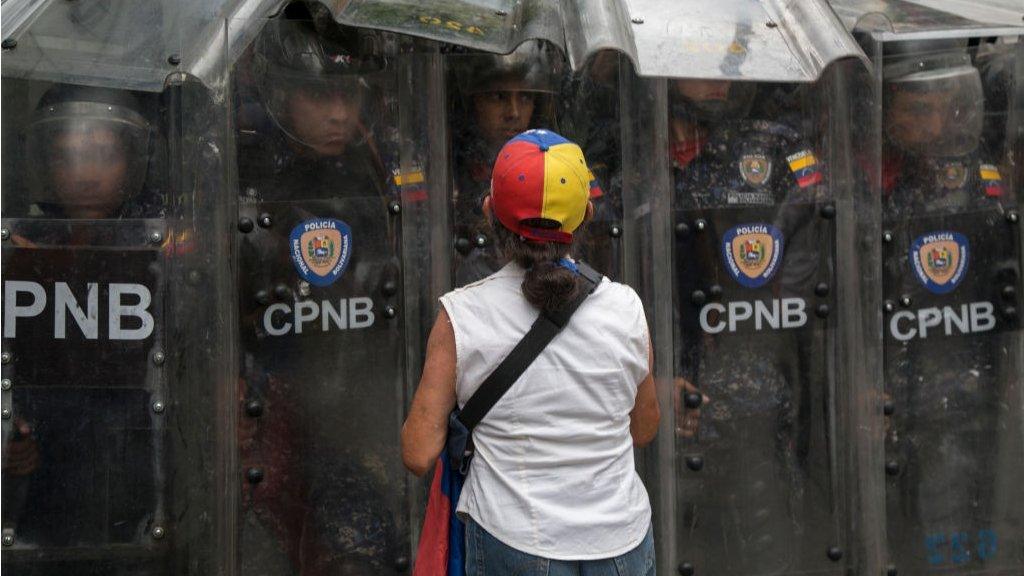Venezuela crisis: Why the military is backing Maduro
- Published
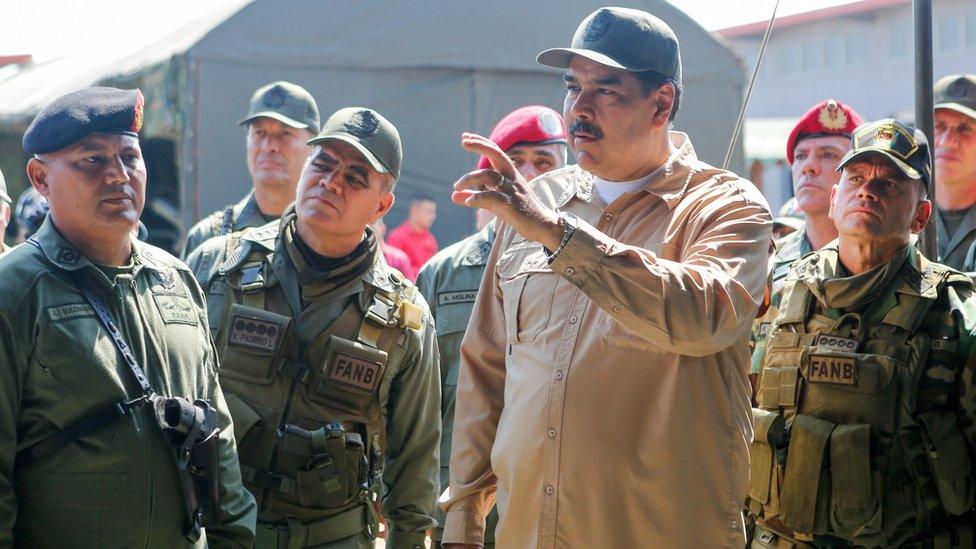
President Maduro has put on a public display of unity with senior military officers
With Venezuela in economic and political crisis, more than 20 countries have recognised opposition leader Juan Guaidó as interim president, including the US.
To add to President Nicolás Maduro's woes, a top military representative to the US, Col José Luis Silva, defected on Sunday and called on other officers to do the same.
But if Mr Maduro's hold on power is slipping, why has Venezuela's powerful military not stepped in to give him the final push? The BBC looks at some of the reasons.
Picked for the job
When Mr Maduro's predecessor, Hugo Chávez, came to power he purged the military to ensure its senior figures were aligned with his left-wing ideals, analysts say.
The former paratrooper cut a military figure and commanded loyalty. In return he rewarded officers with positions of power.
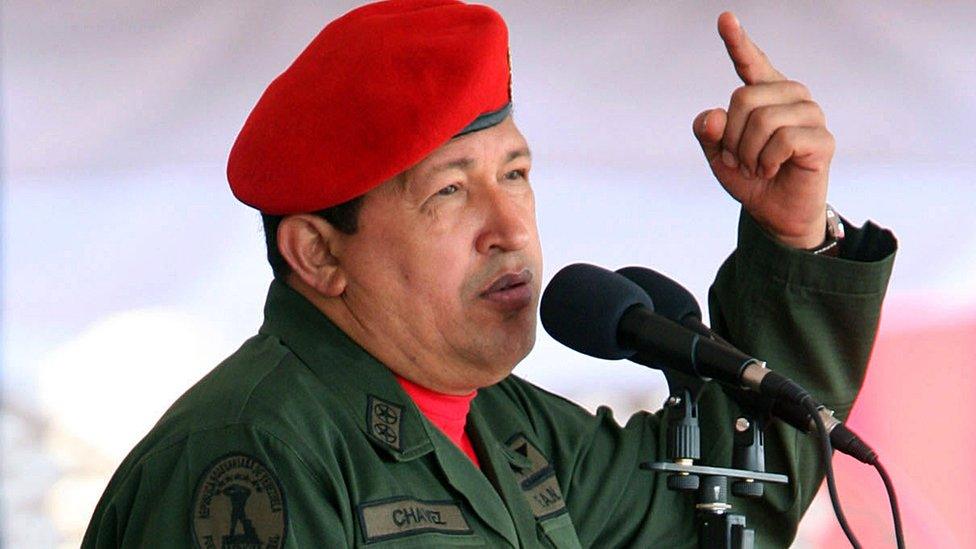
Hugo Chávez was often pictured in the red beret of his parachute regiment
"Previously the military had been more or less confined to barracks, but Chávez let them out and gave them access to cabinet posts, to control of banks and other financial services," Phil Gunson, senior analyst at the International Crisis Group, a Brussels-based think tank, told the BBC.
Mr Maduro, a former bus driver with no previous military links, has continued the trend. The armed forces have played a key role in supporting his government, with many officers holding posts as ministers or other influential positions.
Key sectors now in the hands of senior officers include the crucial food distribution services, run by Defence Minister Vladimir Padrino, and the state-owned oil and gas company PDVSA, which has Maj Gen Manuel Quevedo, head of the national guard, as its president.
Over the years the military has been allowed to become corrupt, Mr Gunson says.
Human right violations
If holding lucrative positions is one incentive for members of the armed forces to keep Mr Maduro in power, the fear of being held to account could be another.
"Parts of the military, particularly the senior officers, would like this to continue because they are making money out of it but also because they are so compromised," said Mr Gunson.
"If your officer corps is corrupt and your intelligence people are keeping abreast of who is stealing what then you build up big files on each individual which makes it very difficult for them to change sides."
The UN has accused Venezuelan security forces of carrying out hundreds of arbitrary killings under the guise of fighting crime and some officers are accused of serious humans rights violations.
"They are fearful that if the government fell they could spend the rest of their lives in jail," said Mr Gunson.
Brian Fonseca, a defence and security expert at Florida International University, says President Maduro has effectively tied the survival of his government to the military leadership by allowing them to participate in corruption.
"What is emerging now is Maduro is attempting to demonstrate some degree of strength and control in order to reinforce, within the military, that he is in a stable position. Whether that is true or not, we don't know," he told the BBC.
In late January, opposition groups arrived at military barracks to hand troops leaflets promising them amnesty if they backed Juan Guaidó.
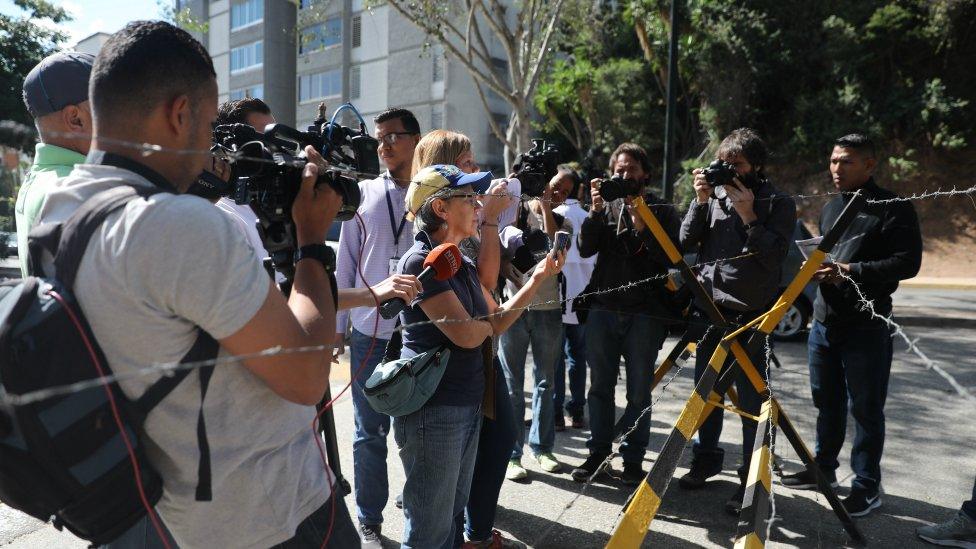
Opposition supporters arrived at military sites to try to persuade soldiers to support Juan Guaidó
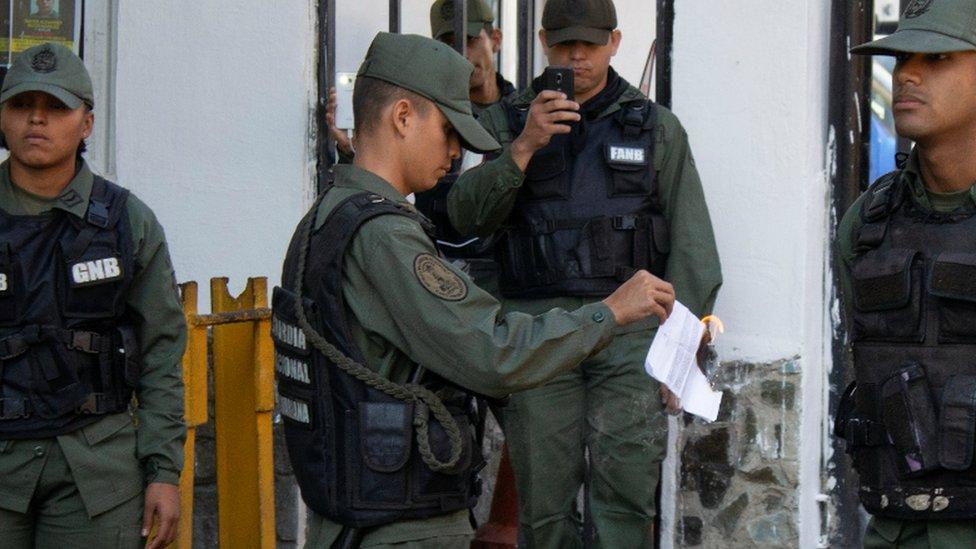
National Guard officers made a show of burning the amnesty offer
"It was an opposition-led grassroots campaign to try to appeal to mid-level and junior military service members," Mr Fonseca said.
"The military in turn were burning the pamphlets that they were being given. It was being blasted all over social media as a means of trying to reinforce that the military is cohesive and aligned behind Maduro."
Soon after, US National Security Adviser John Bolton told reporters in Washington that rank and file members of Venezuela's armed forces were "looking for ways" to support Mr Guaidó, the elected leader of the opposition-held National Assembly.
He said the US was "aware of significant contacts" between military officers and supporters of the assembly.
The offer of amnesty may entice some among the armed forces to switch sides, but others may not be persuaded, Mr Fonseca added.
"The military leadership has a lot to lose. Even with provision of amnesty, that doesn't necessarily guarantee amnesty. There have been cases in the past when amnesty was overturned a generation or two later," he said.
"There is no guarantee that those who have committed repression, corruption or drug trafficking would be off the hook if the opposition comes to power."
- Published27 January 2019
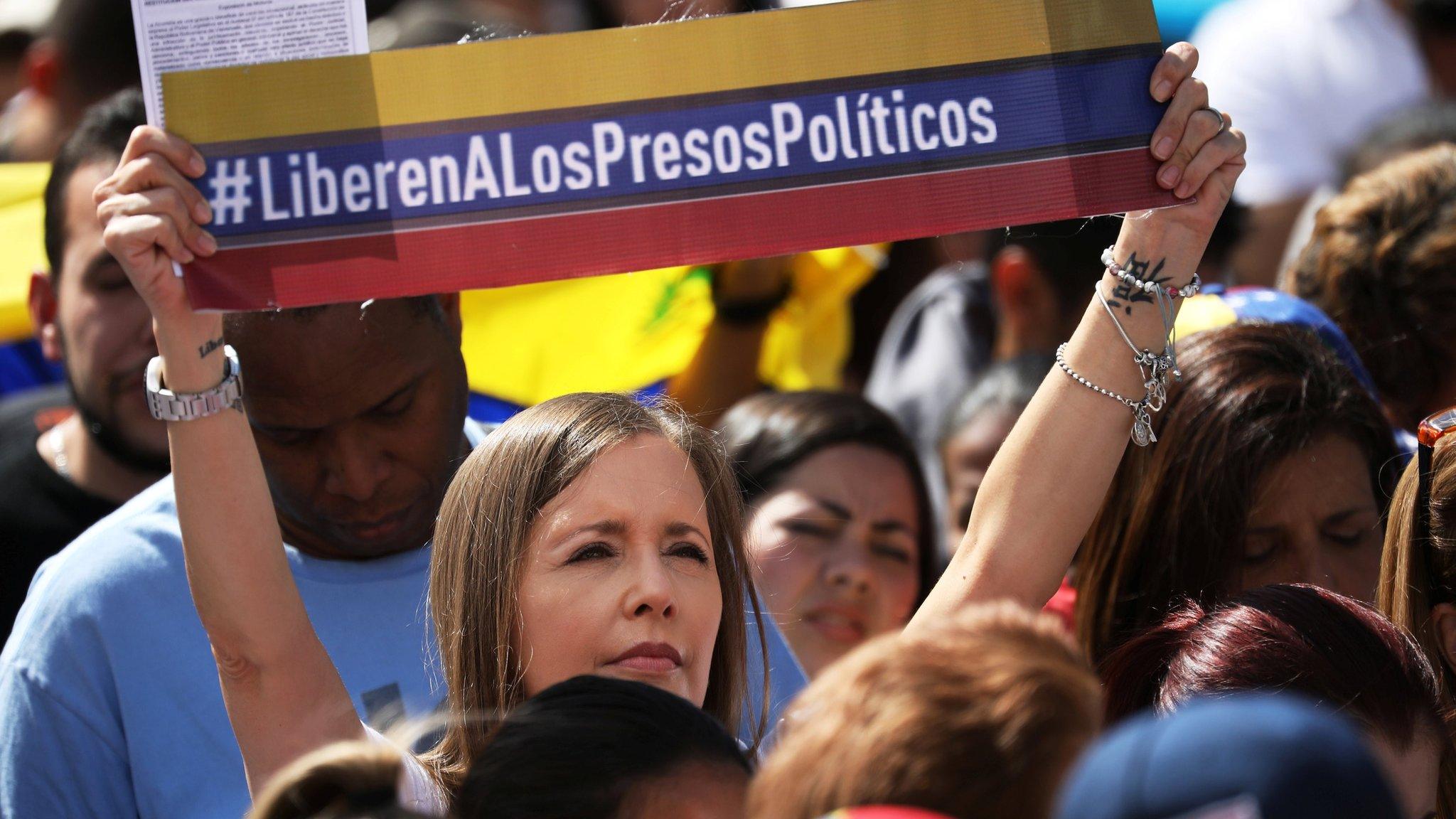
- Published4 February 2019
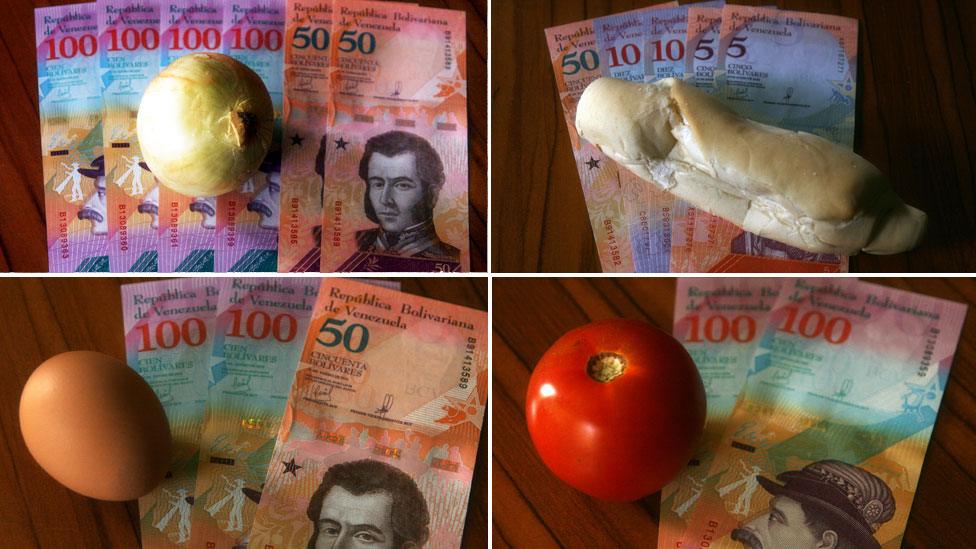
- Published12 August 2021
